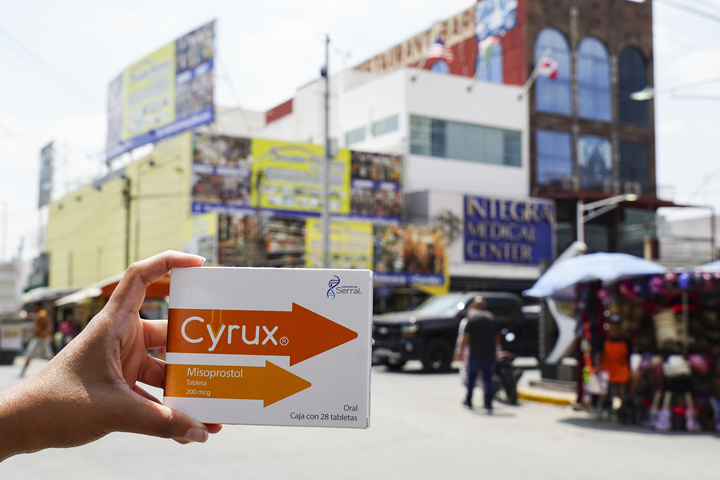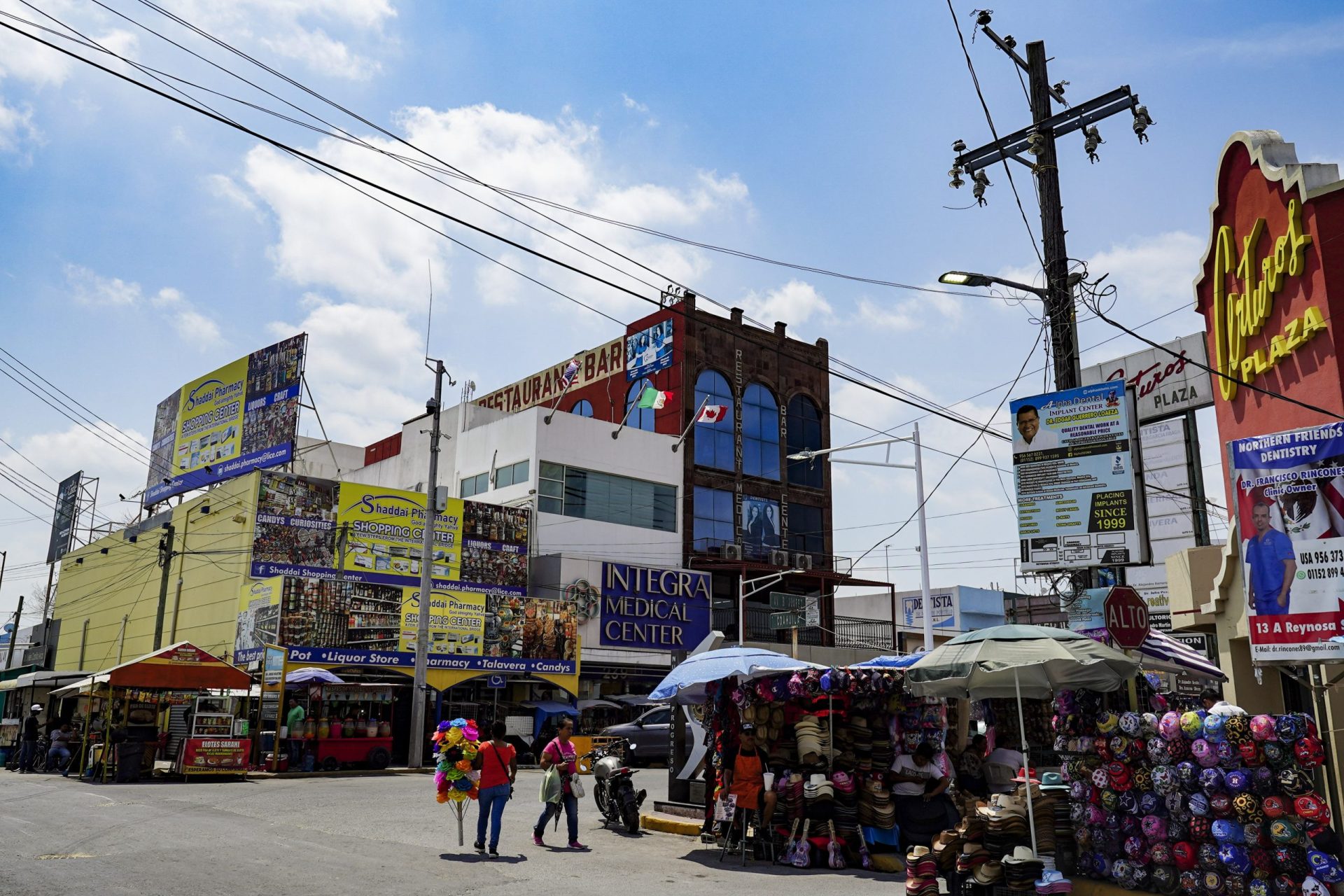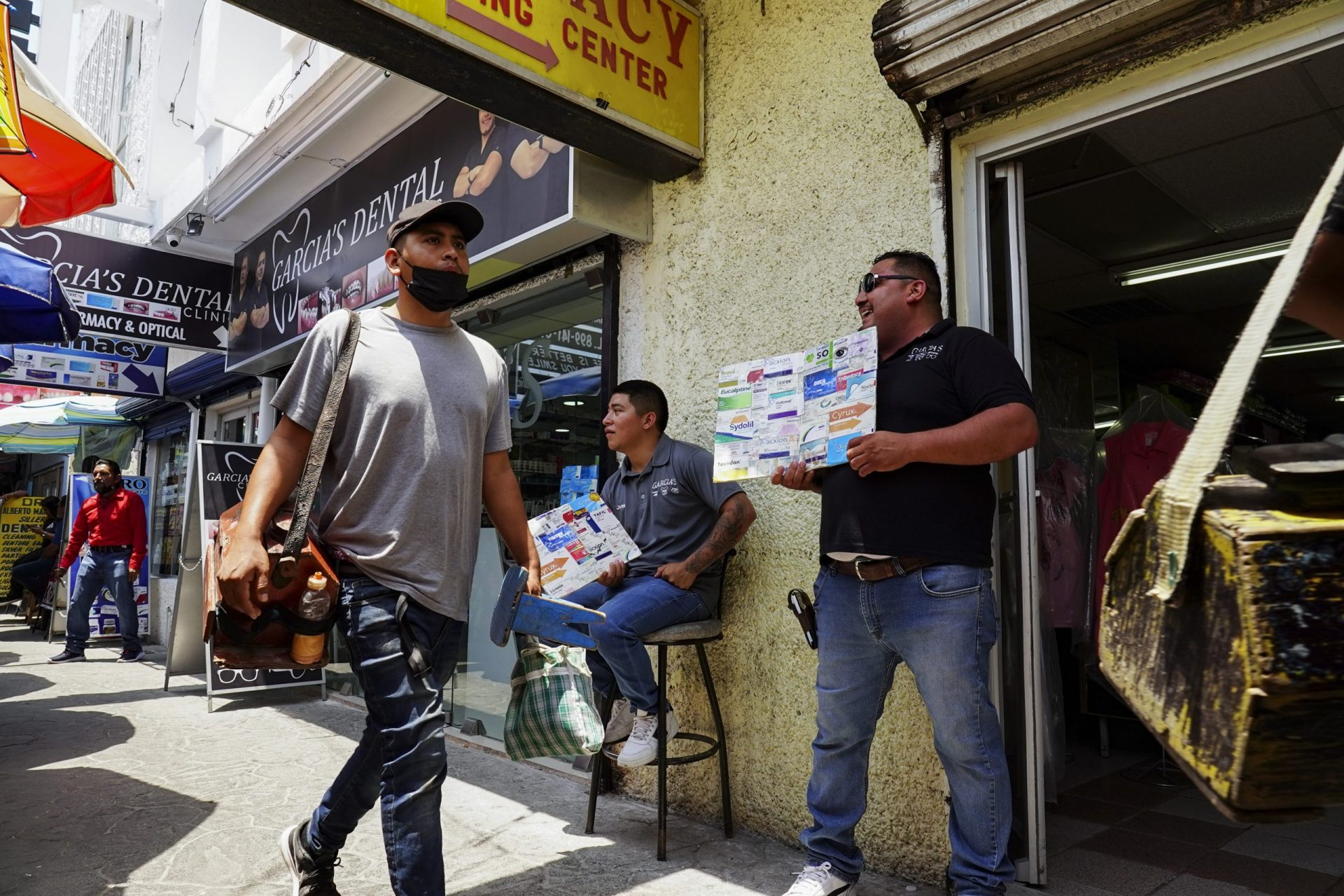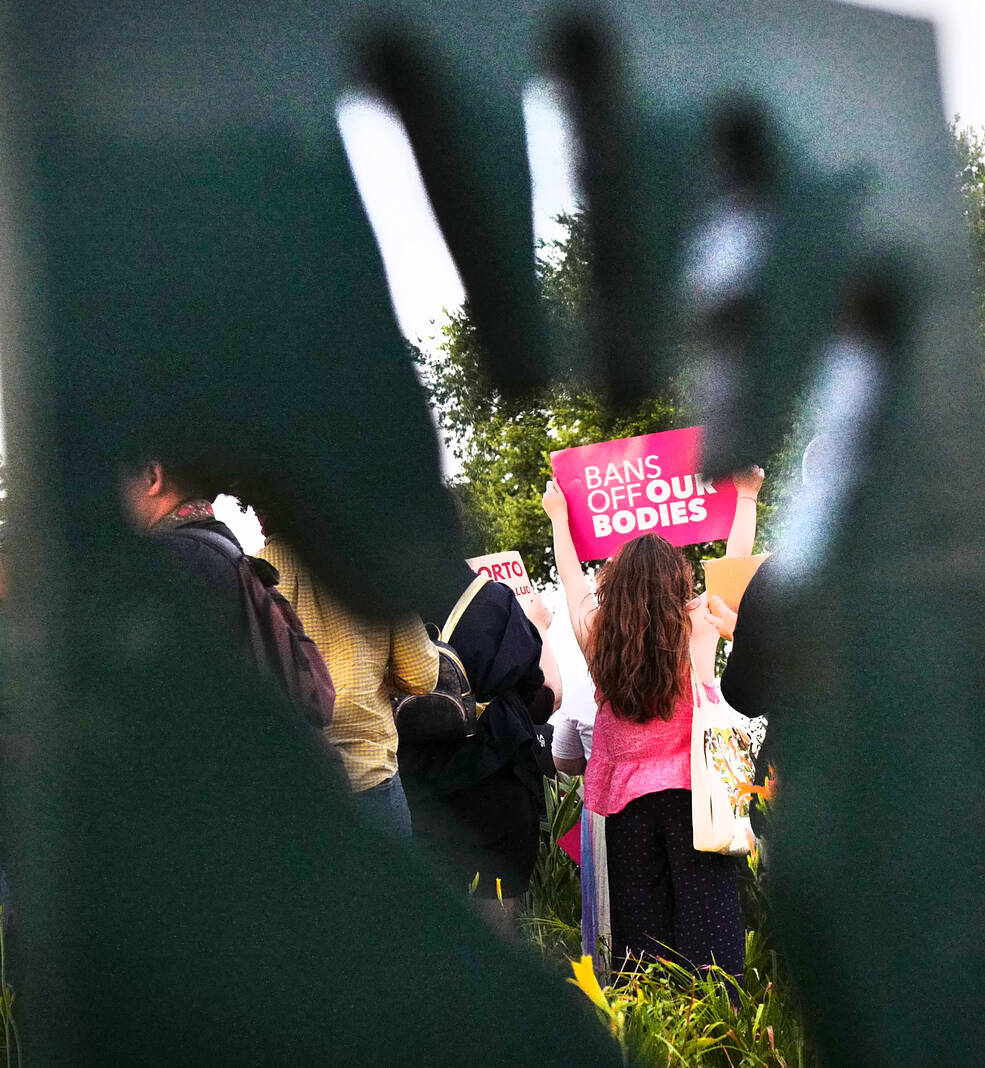McALLEN — As the sun began to set on a tumultuous week, roughly 200 people gathered in front of city hall here to protest the latest blow to abortion rights.
At the rally Friday evening, organized by South Texans for Reproductive Justice and Planned Parenthood South Texas, people passed out condoms to those in attendance as well as flyers on how to stay informed on abortion access.
Eleven hours earlier, news broke that the U.S. Supreme Court had ruled to overturn the landmark decision in Roe v. Wade, paving the way for states like Texas to essentially ban all abortions.
But while the protesters did take a moment to mourn the effects of the decision, for the most part they were angry and ready to fight.
Alexis Bay, a fellow with the Texas Civil Rights Project, said the decision was just the latest example of how the federal government punishes the region.
“They’ve been doing this for hundreds of years and no matter what they do, this very special place, the Rio Grande Valley, always stands up every time it gets knocked down,” Bay told the crowd.
“And we’re going to do it again, and again, and again no matter where they hit us from — from the federal government to the state government, even if it’s our local government — we will get through this and we will make abortion accessible,” she said. “We will make sure that everyone, regardless of their economic situation and their immigration situation, can have access to abortion health care because that is what it is. It is health care.”
LEGAL QUESTIONS
Shortly after the court issued their opinion, abortion clinics throughout the entire state stopped providing abortions due to the threat they could be prosecuted under a state criminal abortion ban that was in place before Roe v. Wade.
Texas Attorney General Ken Paxton issued an advisory Friday stating that some prosecutors “may choose to immediately pursue criminal prosecutions based on violations of Texas abortion prohibitions predating Roe that were never repealed by the Texas Legislature.”
He also wrote in a tweet that “abortion is now illegal in Texas.”
During a virtual news conference held via Zoom, Whole Woman’s Health President and CEO Amy Hagstrom Miller said they disagreed with Paxton’s interpretation of the criminal abortion ban but stopped providing abortions to protect their staff and patients from “hostile elected officials.”
But even if legal clarification indicates those pre-Roe laws are unenforceable, Texas still has a “trigger ban” that will go into effect 30 days after the Supreme Court issues an official judgment overruling Roe.
In his advisory, Paxton noted Friday’s ruling was just an opinion, not an actual judgment, so it is still left to be seen when Texas’ trigger ban will go into effect.
With the signal from Paxton that prosecutors can pursue abortion-related charges, attention has turned to district attorneys across the state.
Five Texas DAs — from Dallas, Travis, Bexar, Nueces, and Fort Bend counties — have stated they will not prosecute those who seek, provide, or support abortions.
Last month, when asked about whether he would make such a commitment, Hidalgo County District Attorney Ricardo Rodriguez said he could not make a blanket statement and that his office would have to follow and enforce the law.
However, when reached again Saturday, he added that they have the authority to prosecute cases at their discretion.
“We’re going to take it on a case by case basis,” he said, referring to abortion-related cases.

ALTERNATIVES
Texans who need abortions can still travel out of the state to obtain one, but the hurdles to make such a trip, including the money to pay for that, can be really cumbersome.
It’s why some Valley residents have, instead, opted for a self-managed abortion which can be done with medication.
When people go to a clinic seeking an abortion, one option is a surgical abortion but most often they obtain a medication abortion with the use of two medications — misoprostol and mifepristone.
The World Health Organization says people can use both medications to safely self-administer an abortion for up to 12 weeks of pregnancy with a 95-99% chance of success. But because mifepristone is only used for abortions, it is a lot harder to find, though U.S. Attorney General Merrick B. Garland said Friday that states cannot ban medications such as mifepristone which have been approved by the U.S. Food and Drug Administration.
Still, with a 75-85% chance of success, many people will opt to self manage an abortion using just misoprostol, an ulcer medication commonly used for abortions and found in pharmacies just across the border.

CROSSING THE BORDER
For those who are able to travel to Mexico and back, it is fairly easy to get misoprostol from a pharmacy in tourist-heavy Nuevo Progreso.
The second pharmacy on Benito Juarez Avenue sells a box of the generic brand, containing 28 pills, for just $17.
Not all pharmacies sell it and prices at each can vary from $35 to $65 for the same box. Still, those that carry it will sell it to whoever wants it — no prescription needed and no questions asked.
In May, pharmacy employees in Nuevo Progreso said they hadn’t seen any recent uptick in sales of misoprostol, though at least one said he expected that to change if Roe v. Wade were to be overturned.
Workers at the pharmacies that don’t carry the drug cited religious reasons.
A woman at one pharmacy located just off the main strip said her brother, the pharmacy manager, goes to church every week.
At another pharmacy, High Estethic Dental Office, a clerk said the pharmacy sells about two boxes per week. But then the manager walked in and the clerk denied selling the drug at all because it “goes against God.”

Jonathan Cortez, who works at Garcia’s Dental Clinic Pharmacy and Optical, said he sells it because it’s business. He sells the generic brand of misoprostol on the higher end, $65 for a box, but he says that price includes instructions on how to take the medication for an abortion.
For Desiree, a Valley resident in her mid-20s, going to Progreso seemed like her best option when she found out she was nine weeks pregnant in 2019. Due to fear of harassment, Desiree is using a pseudonym to conceal her identity.
“I was estimating that I had up to like, maybe, 16 weeks to have the abortion,” she said. “My transportation wasn’t reliable, I couldn’t at the time miss out on wages because I was still trying to get financially stable and I had already reached out to an abortion fund who told me that they couldn’t fund my full abortion so that there was still like $200 or $300 that I would have to pay.”
So about four days after finding out she was pregnant, she drove to Progreso with some friends, entered the first pharmacy she saw, purchased the medication for about $60, crossed back and went home.
She said the process didn’t scare her since she had already done research from websites like WeTestify.org and PlanCPills.org and felt comfortable that they were safe. After it was over, she felt relieved.
“Just really, really relieved and happy that I didn’t have this major thing looming over me and wondering how it was going to affect me mentally and physically and financially,” Desiree said.

POST-ROE
Though she believes many people throughout the Valley have probably resorted to self-managed abortions for years, she’s not sure it will be a viable alternative for people going forward if law enforcement or customs try to crack down on it.
“With something so restrictive as a total ban on abortions that will take place here in Texas after the 30 days pass, that’s just giving the green light for more extreme restrictions,” she said, “and being that we live on the border, which has been more and more militarized over the years because of racism and all these stereotypes and beliefs about people who cross the border, pairing that with a total ban on abortion, I wouldn’t be surprised if they increase surveillance there or something.”
“I feel like it could lead to that not being (as) safe of an option as it was before,” she said.
She said the best thing people can do in the current climate is to share information that is already out there, assuming that states that have banned or are looking to ban abortion will also try to make people fearful of talking about it.
“I think the best resource that states with total abortion bans will have is knowing how to share the information and what resources are actually available by the way that we talk about it,” Desiree said, warning that people needed to be aware of how they shared that information online due to fear of online surveillance.
“I also feel like people have to determine on their own what risks they’re willing to take and whether or not seeking the medication through Progreso is something that they’re able and willing to do,” she added, “but I don’t doubt that people are going to do it.”
At the rally in McAllen Friday night, Diana Vazquez, 45, said she was angry and emotional about the decision.
“We have rights and they just took it away just like that,” she said. “It’s not fair, we need to be heard.”
Vazquez had an abortion when she was 15 years old and now has two daughters who are both in their 20s. The rollback of abortion rights, she said, has her worried about their futures.
“Now, my girls, they don’t have a say so to their rights, to their bodies,” she said.
Vazquez said she was angry about what might happen to people who get pregnant as a result of sexual assault but also wants anybody who wants an abortion to be able to obtain one.
“It’s your body, you have the right to say yes or no,” she said. “What if you can’t afford a baby?”
She and her daughters have discussed possible alternatives but ultimately, she said they don’t know what they would do if she or someone she knew needed an abortion. And while the fight continues throughout the community, she doesn’t know if there will be a solution.
“I hope and pray there will be one,” she said.




